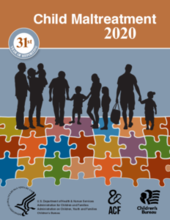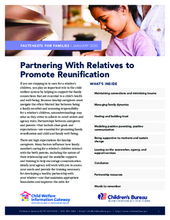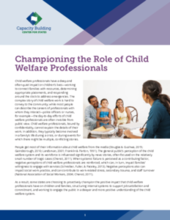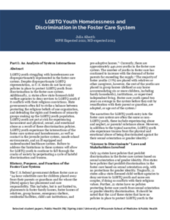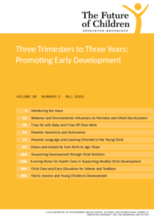Displaying 741 - 750 of 2221
This study examined the long-term effects of the Head Start early childhood program on foster children's developmental outcomes from ages 3–4 to 8–9.
In response to the ongoing call for a complex systems approach for understanding and informing child welfare practice and policy, this article presents a context-specific conceptual framework that combines complexity theory and network analysis.
This study examined whether caseworker demographic factors, attitudes towards evidence-based practices (EBPs) and organizational factors predict caseworker referrals. Relying upon tenets of the Theory of Planned Behavior, this study also examined whether intention to refer predicts caseworker referrals to an EBP.
In this segment from NPR, Efrén Olivares of the Texas Civil Rights Project discusses the lasting impacts of family separation on children and parents who have since been reunified.
Child Maltreatment 2020 is the latest edition of the annual Child Maltreatment report series. States provide the data for this report via the National Child Abuse and Neglect Data System (NCANDS). NCANDS was established as a voluntary, national data collection and analysis program to make available state child abuse and neglect information. Data have been collected every year since 1991 and are collected from child welfare agencies in the 50 states, the Commonwealth of Puerto Rico, and the District of Columbia.
Child Maltreatment 2020 is the latest edition of the annual Child Maltreatment report series. States provide the data for this report via the National Child Abuse and Neglect Data System (NCANDS). NCANDS was established as a voluntary, national data collection and analysis program to make available state child abuse and neglect information. Data have been collected every year since 1991 and are collected from child welfare agencies in the 50 states, the Commonwealth of Puerto Rico, and the District of Columbia.
This factsheet shares the experiences and advice of families who have had relatives in
kinship care arrangements to highlight the dynamics and steps that can support reunification.
Child welfare professionals have a deep and often quiet impact on children’s lives—working to connect families with resources, determining appropriate placements, and responding around the clock to address emergencies.
This analysis of system dysfunction in the U.S. involving legislative powers, child welfare agencies, and peripheral systems, such as juvenile justice, schools, and healthcare, reveals a distinct misalignment in shared values.
This issue of the Future of Children focuses on the first years of life starting with in utero experiences.

